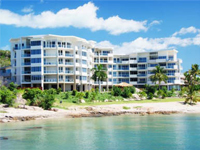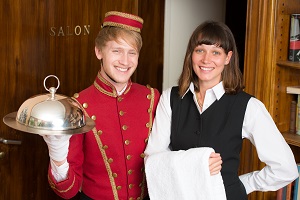
The importance of MR to the ongoing success of Queensland tourism
It’s a fact that the management rights industry in conjunction with apartment owners who have entrusted their units to short term letting, form the backbone of the Queensland tourism industry.
The majority of apartment owners are mum and dad investors who bought an investment apartment with the long term dream of retiring in sunny Queensland. The boom years for property development of the 70s, 80s and 90s saw large numbers of apartments built, which in turn provided the accommodation that enabled tourism to grow right across Queensland.
However due to the economic climate and in some areas oversupply of stock, the number of new build apartment developments has all but stopped and the loss of apartments from the holiday let market to owner occupiers continues. With the large number of baby boomers looking to retire to Queensland, the loss of holiday rental apartments to owner occupiers is likely to increase further (more holiday let apartments are being lost from the holiday rental pool to owner occupiers than are being built to replace them).
The loss of holiday rental apartments to permanent owners has the potential to seriously affect Queensland tourism as ultimately tourists will have less accommodation available. It will also reduce the business values of management rights businesses as their rental stock dwindles.
To demonstrate the value of tourism to Queensland alone the following figures really say it all:
Employment
In 2011-12 tourism directly accounted for 136,000 jobs (or 5.9per cent) and indirectly accounted for 99,000 jobs, or in total 10.1per cent of employment in the state. This is substantially more than the mining sector (66,300 direct jobs) or even agriculture, forestry and fishing (77,700 direct jobs). Cafés, restaurants and takeaway food services had the largest share of tourism employment (26per cent), followed by retail trade (19per cent) and accommodation (13per cent).
Gross state product – In 2011-12 direct and indirect tourism GSP was $22 billion, or 7.8 per cent of total Queensland GSP. Tourism contributes $10.55 billion directly to the Queensland economy, accounting for 3.7 per cent of Queensland’s GSP and indirectly contributes an additional $11.5 billion to the Queensland economy.
Tourism businesses in Queensland are small businesses
No other sector of the economy has more small businesses, with 9 in 10 tourism businesses employing less than 20 persons. Previously, it was estimated that Queensland had 115,500 tourism businesses as at June 2007. A methodology change has revised the classification of tourism related businesses. It is now estimated that as at June 2011, Queensland had 55,700 tourism related businesses, representing 12.9 per cent of all registered businesses in the state.
Tax revenue
Net taxes on tourism products arising from tourism consumption in Queensland raised $921 million in federal, state and local government revenues, and was 25.7 per cent of total taxes on tourism products as a whole.
Overseas exports
For the year ended June 2012 overseas tourism exports were $5.7 billion for Queensland. Tourism is the state’s second largest export, behind coal.
Based on these figures it appears investor owned apartments make a significant contribution to the Queensland tourism industry and by default the Queensland economy. So the question is – how do management rights operators protect their businesses, protect the interests of apartment owners and provide desirable accommodation to maintain and hopefully grow the tourism market?
The average age of all holiday let apartments is getting older, it’s likely a survey would reveal the average age of Queensland holiday apartments would be around 15 years old. A small percentage of these apartments have been totally refurbished, most have been well maintained and, sadly, some are old, dated and worn out. Despite the best efforts of owners and managers, the overall standard of Queensland holiday accommodation is deteriorating as apartments age.
The owners of managed apartments see net returns in the vicinity of 1 per cent – 3 per cent, with negative gearing and depreciation helping to make the investment bearable. Different owners have different investment strategies and vastly different budgets. Both of these factors lead to different apartment maintenance strategies.
So we have a number of serious issues facing our industry that, by default, are all interconnected;
– Holiday let apartments are the crucial to the success of Queensland tourism.
– Tourism is a significant contributor to Queensland employment and GDP.
– The overall quality of Queensland holiday apartments is decreasing as they age (as evidenced by AAA’s recent ratings)
– The net quantity of Queensland holiday let apartments is decreasing as permanent tenants move in
– Declining quality holiday apartments is a huge risk to Queensland tourism
– Lack of new holiday let apartments being built is a risk to Queensland tourism
– Poor returns make holiday let apartments an undesirable investment.
– Poor owner returns mean owners have little incentive (or ability) to improve holiday let apartments
These issues are very serious and we as an industry need to find a workable solution to overcome these problems. Perhaps we need to look at the WA model where tourism product is just that, no owner occupation for more than 90 days, no permanent lets.
Food for thought – your comments welcome.

AccomNews is not affiliated with any government agency, body or political party. We are an independently owned, family-operated magazine.






